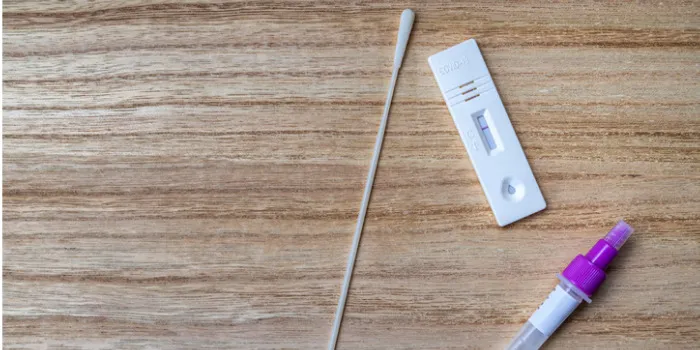It’s 2022 and COVID-19 is, unfortunately, still around. Of course, things have gotten better, but the pandemic still trudges along, and the ubiquity of the disease has made at-home COVID-19 test kits a popular item for those feeling under the weather. But if you have hemophilia, you may be wondering if these tests are safe for you to use.
There are some at-home tests out there with disclaimers on their information sheets that say not to take the nasal tests if you’re prone to nosebleeds. For example, iHealth warns of this on its COVID-19 Antigen Rapid Test (see page 5 for limitations).
That said, an at-home test is a quick and easily accessible way to see if you’ve been infected with COVID-19 so that you can get the treatment you need and keep those around you safe by quarantining.
What the Experts Say About Using At-Home COVID Tests
At-home tests usually involve taking a swab at the back of your nose and throat with a cotton swab, which may lead to concern about nosebleeds. But it’s not a sure thing that a test would trigger a bleed, let alone a severe one.
“Essentially, if you haven’t had a recent episode of a nosebleed there is no reason a nasal swab should trigger a bleed,” says the Haemophilia Society, but the U.K.-based group cautions that it can’t give out medical, diagnosis, or treatment advice. “However, it is difficult to say if there is zero risk involved and you should discuss it with your hemophilia team before having the test as they will be able to make a much more individualized risk assessment for you.”
If you do experience a nosebleed as a result of a COVID-19 nasal swab, reference this helpful infographic for steps to lessen bleeding, and contact your physician or HTC.
What Studies Show
In a study on clinical findings in a patient with hemophilia A affected by COVID-19, researchers found that an oropharyngeal swab (throat swab) was suitable as a sample for patients with hemophilia A rather than a nasal swab. The study says that in this case, no bleeding events occurred.
In a study on the safety of oro/nasopharyngeal swabs for testing COVID-19, only three out of 4,876 patients suffered moderate nosebleeds; in one of the three cases, bleeding became more severe due to a septal deviation that “may have misled the swabbing process to the upper part of nares where trauma to the anterior ethmoidal artery may have occurred.” Overall, the study concludes that using oro/nasopharyngeal swabs is a safe way to detect COVID-19.
Can People with Bleeding Disorders Get the COVID-19 Vaccine?
If you’re hesitant about getting tested, you may also be uncertain about getting the COVID-19 vaccine. However, there is guidance on the vaccine for people with bleeding disorders, courtesy of the World Federation of Hemophilia (WFH), the European Association for Haemophilia and Allied Disorders (EAHAD), the European Haemophilia Consortium (EHC), and the National Hemophilia Foundation (NHF).
In a press release, the organizations issued a joint statement on the COVID-19 vaccine to people with bleeding disorders, stating that “all rare bleeding disorder patients (including those with thrombocytopenia and/or platelet function disorders) should be vaccinated.” Additional guidance includes:
- Should be administered intramuscularly, using the smallest gauge needle available (25-27 gauge), if possible
- Pressure should be applied to the site for at least 10 minutes post-injection to reduce bleeding and swelling
- For patients with severe/moderate hemophilia, the injection should be given after a factor VIII (FVIII) or factor IX (FIX) injection. For patients with a basal FVIII or FIX level above 10%, no hemostatic precautions are required
NHF released further guidance, stating that “having a bleeding disorder is not a reason to avoid getting the vaccine.”

